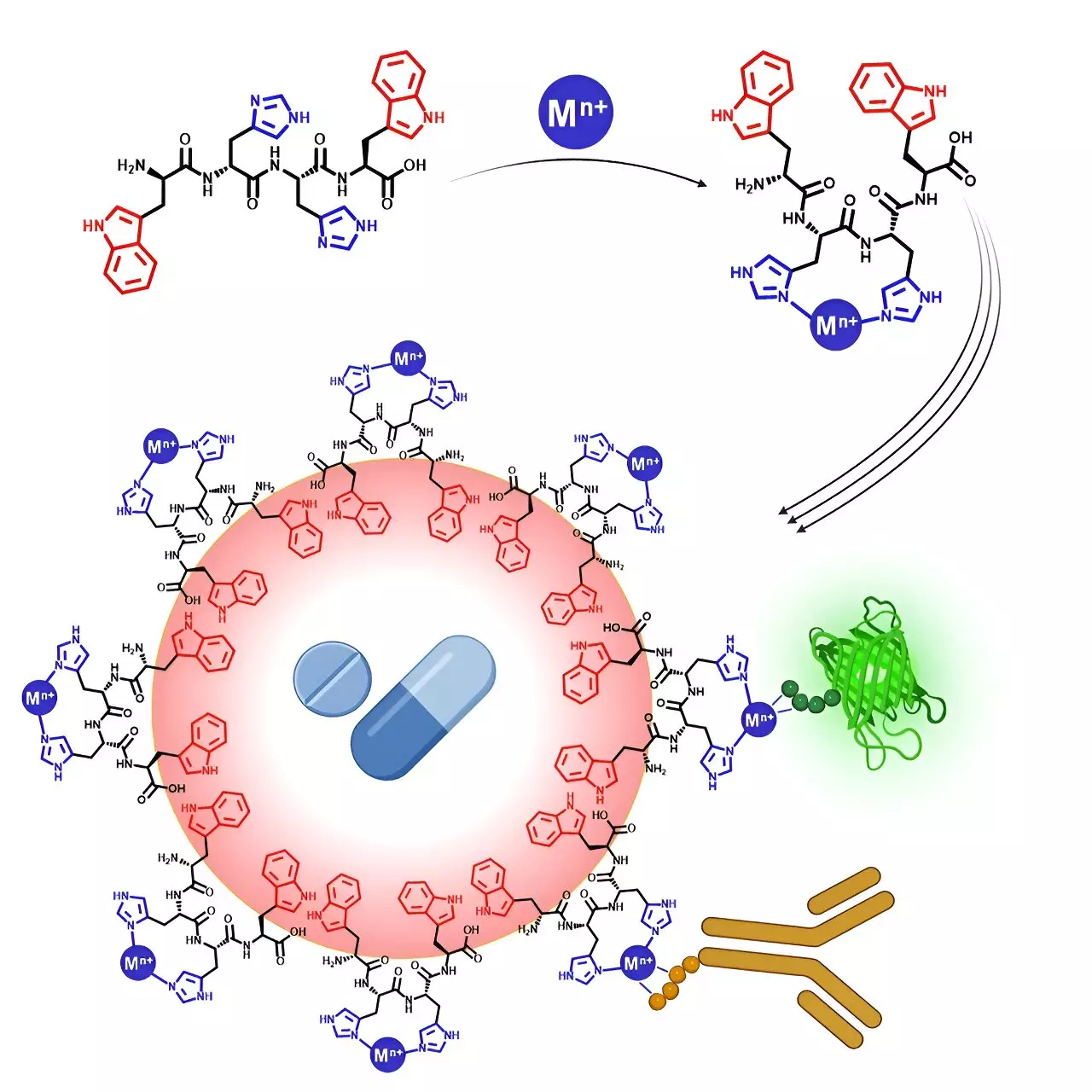In a groundbreaking study led by Prof. Meital Reches and her team at the Hebrew University, a new drug delivery system is on the horizon. This innovative approach focuses on switchable peptide-stabilized emulsions, offering a solution to the longstanding challenge of transporting both water-soluble and water-insoluble compounds simultaneously within a single carrier.
The Role of Peptides
Traditionally, emulsions have been used as carriers for drug delivery, but their effectiveness has been limited by the inability to encapsulate both types of drugs within the same vehicle. Prof. Reches and her team addressed this limitation by developing a short peptide consisting of only four amino acids. This peptide has the remarkable ability to stabilize emulsions and accommodate both hydrophilic and hydrophobic compounds, making it a game-changer in drug delivery technology.
The key to this innovation lies in the peptide’s ability to change its shape upon binding specific metal ions. This transformation from hydrophilic to amphiphilic allows the peptide to adhere to both water and fat, ensuring the stability of the drug mixture. Moreover, the peptide can also transport water-soluble metal ions, making it a versatile and efficient carrier for a wide range of compounds.
To unlock the secrets of these peptide-stabilized emulsions, researchers employed sophisticated techniques such as spectroscopy, NMR, and molecular dynamics. Through their investigations, they discovered that the stability of these emulsions is dependent on bonds between histidine and metal, which are reversible under low pH conditions. This property enables precise drug release in targeted areas, such as tumor cells, enhancing the efficacy of treatment.
Early trials involving paclitaxel-loaded emulsions have shown promising results, with significant efficacy against cancer cells. This demonstrates the potential of this innovative drug delivery system to revolutionize cancer treatment. Moreover, the versatility of this system opens up new possibilities for tailored drug delivery solutions with various features and benefits.
The development of switchable peptide-stabilized emulsions represents a significant advancement in drug delivery technology. By overcoming the limitations of traditional methods, this innovative approach has the potential to revolutionize the field and improve the effectiveness of treatment for a wide range of medical conditions. With further research and development, the future of drug delivery looks brighter than ever before.


Leave a Reply